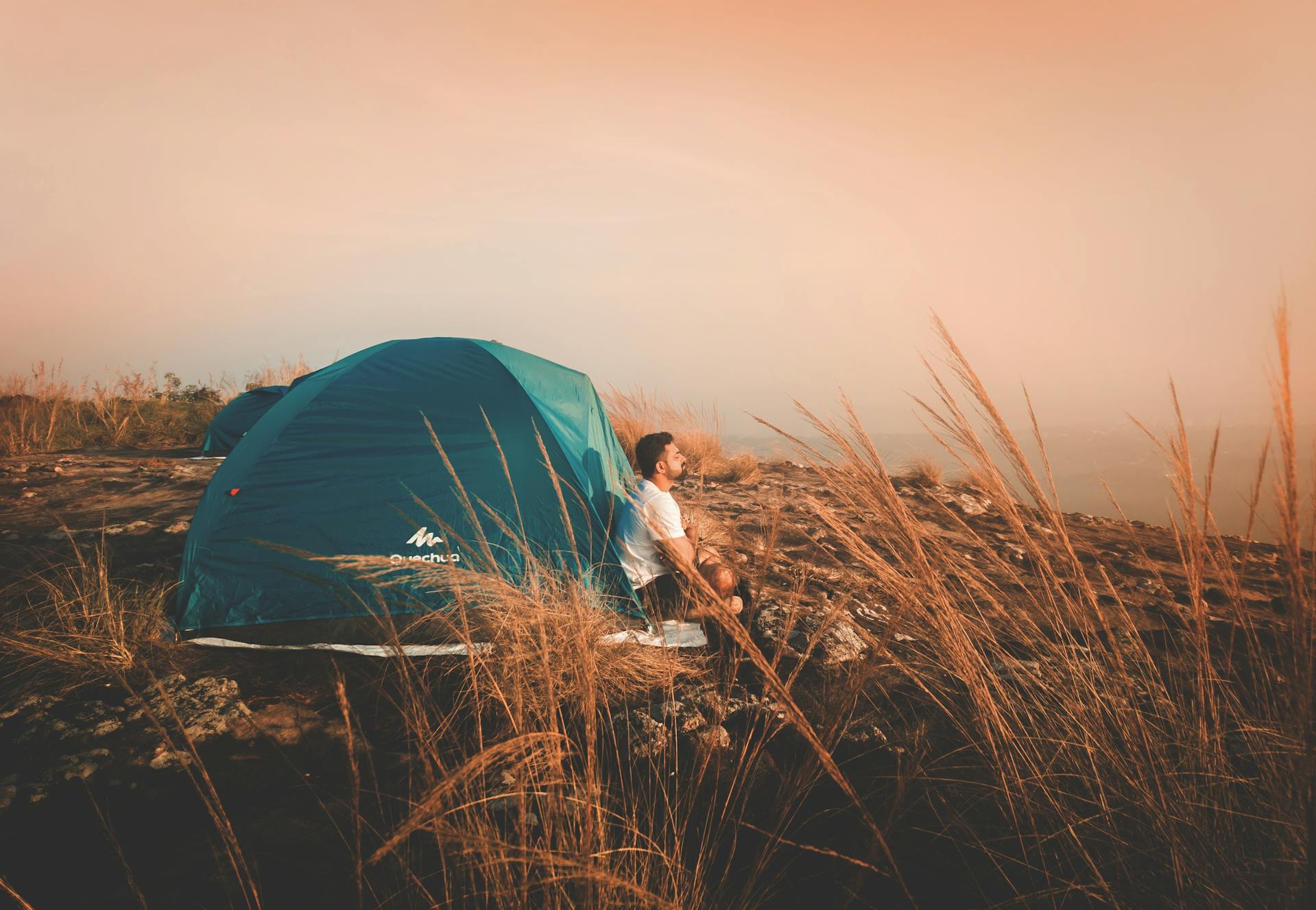What local wildlife should you be aware of when camping in the UK?

Camping in the wild is an experience that brings you close to nature, letting you absorb the tranquillity and beauty of the land. Whether it's Scotland, England, or Wales, the United Kingdom is filled with magnificent landscapes that offer some of the best camping spots. While the enchanting view of the water under the starry night sky can be a sight to behold, you should also be aware of the local wildlife when you set up your tent at your chosen campsite.
While most creatures you'll encounter are harmless, some require caution. This article aims to inform you about the different animals you could come across while camping in the UK to ensure your safety and respect for their natural habitats.
A lire également : How to navigate common legal issues while camping in the UK?
Wildlife in Scotland: What To Expect
Scotland, known for its vast wilderness and national parks, is a popular destination for camping enthusiasts. The peaceful surroundings and serene water bodies make it a perfect spot for those seeking solace in nature. However, when setting up your tent and laying out your sleeping bag, be aware of the local wildlife.
Scotland is home to a variety of fauna, including Red Deer, the largest native land mammal that can pose a threat if they feel threatened. While they generally shy away from humans, during the rutting season in autumn, stags can become aggressive.
A lire aussi : What are the best strategies for camping with young children in the UK?
Scottish wildcats, another native species, may look similar to domestic cats but can be much more aggressive. If you come across one, it's best to leave them alone. Scotland is also home to adders, the only venomous snake in Britain. While an adder bite is rarely fatal, it can cause painful swelling and should be treated immediately.
Remember, it's essential to respect these animals and their habitats when camping in Scotland.
England's Campsites: Wildlife You Need To Know
England, with its varied landscapes and beautiful national parks, offers numerous areas for camping. While you're busy setting up your camping gear, don't forget to keep an eye out for the local residents.
Badgers and foxes are common sights in the English countryside. Badgers are generally shy creatures but can defend themselves if they're cornered. Foxes are generally harmless but are known to invade campsites searching for food. Always secure your food items and refuse to prevent attracting them.
England is also home to various bird species, such as the Common Buzzard and Red Kites that you might spot flying overhead. While not a threat, they are a beautiful sight and a testament to England's rich biodiversity.
Again, while engaging in wild camping, remember to respect the local wildlife and avoid causing any harm or disturbance.
Face-to-Face with Wildlife in Wales
Wales boasts of rich landscapes and is another favourite camping destination in the UK. The land is brimming with wildlife that can make your camping experience even more exciting.
One of the most commonly spotted animals in Wales is the Red Fox. Although they generally keep a safe distance from humans, leaving your food unattended might attract them to your campsite. So, always keep your food secured.
You might also come across the Welsh Mountain Sheep while hiking in the mountains. They are generally harmless but it's always best to give them their space and admire them from a distance.
The majestic Golden Eagle is another notable species found in Wales. While they pose no direct threat to humans, these birds are a sight to behold in their natural habitat.
To enjoy a safe and fun camping trip, always be aware of these animals and respect their space.
Coexisting with Wildlife: Camping Tips
While wildlife encounters can add a touch of adventure to your camping trip, it's important to remember that we are guests in their home. Coexisting with these creatures requires respect and understanding.
One habit that all campers should adopt is the 'leave no trace' principle. This means leaving the campsite as you found it, or even better. Do not leave any food or litter behind as it can attract wildlife to human-inhabited areas, potentially causing conflicts.
Also, observe animals from a distance. Getting too close can stress the animals and provoke an unexpected reaction. Remember, it's their land first, we are just visitors.
Understanding Wildlife Behavior: Your Best Camping Tool
Learning about the wildlife in the area where you plan to camp can significantly enhance your camping experience and safety. Understanding their behavior can prevent potential dangerous encounters and help you respect the animals' space.
For instance, knowing that deer can become aggressive during the rutting season can prevent unwanted confrontive situations. Similarly, understanding that foxes and badgers are attracted to food can help you take the necessary precautions.
Knowledge, respect, and understanding are your best tools when camping in the wild. Armed with these, you can enjoy a memorable and safe camping experience in the charming wilderness of the UK.
The Charm of Northern Ireland: Wildlife Encounters
Northern Ireland, with its unspoiled landscapes, is another great destination for wild camping in the UK. Pitching your tent amidst the stunning scenery, one can enjoy the tranquillity of the nature. But, it's also important to be aware of the wildlife inhabitants of the region.
One of the most notable residents of Northern Ireland is the Irish Hare. These animals are often seen bounding across the fields and are generally harmless. However, it's best to give them space and not to approach them as they can get stressed in the presence of humans.
Northern Ireland is also home to otters. These creatures prefer to stay close to water bodies and can be seen swimming or playing along the riverbanks. Keep in mind that otters are protected species, and it is illegal to disturb them.
Bird watchers would be delighted to spot the Red Kites, which have been successfully reintroduced in Northern Ireland. These magnificent birds are quite a sight when they soar high in the sky.
Remember, while camping in Northern Ireland, your actions can directly impact the local wildlife. Therefore, always respect their space and leave no trace behind.
Guidance to Wild Camping in the UK
Wild camping can be a fulfilling experience, bringing you closer to the heart of nature. However, it's essential to remember that we are visitors in these environments and should act responsibly.
When wild camping, always seek permission from the landowner. This not only ensures you're not trespassing, but it also helps maintain good relationships with the local communities.
Never pitch your tent too close to a water source, as many animals rely on these areas for their survival. A good rule of thumb is to camp at least 200 feet away from any water body.
Keep your camping spot clean. Dispose of your garbage properly and avoid leaving anything behind. Remember, a clean campsite is less likely to attract unwanted wildlife visitors.
Treat wildlife with respect. Do not feed them or try to get too close. If you encounter any wildlife, observe them quietly from a distance and do not disturb them.
With these guidelines, you can enjoy a memorable camping experience in the UK while coexisting harmoniously with the local wildlife.
Conclusion
Camping in the UK's national parks and open spaces offers a unique opportunity to experience the region's diverse wildlife. From the Red Deer in Scotland, the Badgers in England, the Red Fox in Wales, to the Irish Hare in Northern Ireland, each camping spot brings with it a different set of wildlife encounters.
Understanding and respecting the wildlife is not just about ensuring our safety, but also about preserving these beautiful creatures and their habitats. As campers, it's our responsibility to minimise our impact and leave no trace behind.
Remember, knowledge is power. The more you understand about the local wildlife, the better prepared you'll be. So, before you pack your sleeping bag and set out for your next camping adventure, take some time to learn about the local fauna. This will not only enhance your camping experience but also ensure you're doing your part in protecting these natural wonders for future generations.
So, let's pitch our tents responsibly, respect the wildlife, and make our wild camping adventure in the UK an unforgettable, positive experience. After all, we're not just visitors, but also guardians of these precious natural environments.
